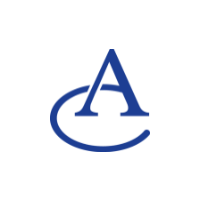

What's the best way to maximise success as you grow your startup?
When you started your business you had a dream.

Create a legacy
When you started out you wanted to create something meaningful, generate financial security for you and your family, and leave a lasting legacy.
You overcame the harsh realities that this was harder, would take longer, and was riskier than you’d expected.
You might fail...but still you persevered.
You invested your money, dedicated your time, and put your talents to work in pursuit of the opportunity you knew was there.
Now it’s time to take that dream to the next level.

So what Is the best way to maximise success?
- Have an MBA from Cambridge or Harvard?
- Have a 1st class degree from a top flight university?
- Be a charismatic visionary with years of product experience?
- Would it surprise you to learn that none of these has any bearing on your likely success?
Professor Thomas Eisenmann of the Harvard Business School published a research paper in October 2020 which quantified the impact of a range of variables on the success of early-stage startups based on their business valuations.
These variables related to customer value proposition, technology and operations practices, marketing approach, profit formula, founder attributes, team factors, and funding model.
What he found, and what his published research shows, is:
Having years of product experience, or even sales and marketing experience, had no bearing on success.
Apart from risk-aversion, personality traits such as being charismatic or visionary had no bearing either.
And, shockingly, having an MBA or a degree from a top 50 university actually DECREASED the likelihood of success.
But there were a whole host of other factors that DID have a bearing on success.
Factors like:
- engineering practices
- the company culture
- people management processes
- financial management
What struck me from this research was that what most of these factors had in common was that they could be traced back to specific thinking attributes (or Cognitive Intentions) of the business leaders.

Let's look at an example
Professor Eisenmann’s research showed that the predicted probability of low valuation decreased from 20% to 11% as the level of structure in engineering management ranged from “almost none” to “very high”.
And the level of structure implemented within engineering management can be traced back to the following Cognitive Intentions:
- Options vs Procedures - as this drives our level of inclination for structure
- Realisation vs Quality Control - as this determines how focussed we are on quality over simply getting the job done
- Sameness vs Difference - as this shapes how much repeatability we recognise within activities
- Pre-Activity vs Re-Activity - as this influences how much effort we put into preventing rather than reacting to issues
- Managing vs Not-Managing - as this affects how inclined we are to tell others what to do, even where we know what should be done
In other words, the quality of engineering management processes, as with many of the other success factors he identified, is attributable to the balance in our preference across pairings of certain Cognitive Intentions.

So what does this mean in relation to that ‘best way' to maximise your success?
Well, research carried out by adult development psychologist Dr Darren Stevens of Coventry University during the development of his Theory of Constructed Development demonstrates that this balance between Cognitive Intentions can be used to measure our level of Self-Awareness.
The greater the balance, the higher our self-awareness.
In other words, what Professor Eisenmann’s research demonstrates is that the level of our startup success is determined by our level of self-awareness.
This finding supports previous research by leadership experts at The Potential Project led by Rasmus Hougaard which found that leaders at the highest levels tend to have better self-awareness, and concluded that self-awareness can help leaders more than an MBA.
And the effect isn’t limited to the leader.
Research by global organisational consulting firm Korn Ferry also shows that companies with a higher proportion of self-aware employees perform better than their less self-aware counterparts AND that this is in part owing to higher levels of self-awareness in the leadership owing to the ‘trickle-down’ effect.
Self-Aware leaders create self-aware employees.
Collectively they create higher business performance.
So, the best way to maximise your success as you grow your startup is to increase your level of self-awareness.
And the best thing is that the effects won’t just be limited to your business.
But I’ll come to that in a bit.
By now, I expect the question in your mind is…

How can I increase my level of self-awareness?
This is where we come back to Dr Darren Stevens and his Theory of Constructed Development.
The findings from his research during the development of this theory threaten to disrupt and transform coaching and adult development.
He established for the FIRST TIME:
- HOW our level of self-awareness can be MEASURED based on the balance between groupings of our Cognitive Intentions.
- HOW we can increase our level of self-awareness by creating disequilibrium in our thinking habits
And
- WHY we need the assistance of a More Complex Other (someone with higher self-awareness than ourselves) to improve our own levels of self-awareness
In other words, Dr Stevens' Theory of Constructed Development is the ONLY theory of adult development that actually explains the mechanism for HOW adults develop - HOW we increase our levels of self-awareness.
What he also realised was that just about every other coaching approach targets the SYMPTOMS of our level of self-awareness.
These symptoms include:
- Our BELIEFS - which are rationalisations for our habituated responses
- Our VALUES - which is just another framing for beliefs, e.g., I value fairness is just another way of saying I believe in fairness
- Our BEHAVIOURS - which are the OUTCOMES of our thoughts
He recognised that the challenges we faced were not problems of utility or agency, but problems of Construction.
And since targeting symptoms is inefficient at best, and ineffective at worst, he developed Coaching 2.0 to target the ROOT CAUSE of these symptoms - our Construction - via our Cognitive Intentions.
Coaching 2.0 is based on three core principles
- A coach's job is not to instruct or direct but to engender ever higher levels of self-awareness. They are a Developmentalist
- The coach must be at a higher level of self-awareness than the client. They must be a More Complex Other.
- The coaching approach is determined by the client’s current construction and level of self-awareness
And having been coached and trained by Dr Stevens, I can testify to its efficacy
Getting that benefit involves three simple stages:
Stage 1 Discover
We discover your thinking style (construction) and your level of self-awareness through your completion of an Identity Compass questionnaire.
This is done at a time and place of your convenience.
All you need is the time required for completion (typically 45 to 60 minutes) and access to a browser linked to the internet.
Stage 2 Decide
You decide your priorities for development as an outcome of the feedback I give you based on your Identity Compass report.
I decide if I can coach you based on your level of self-awareness.
We decide how many sessions you will have, at what frequency, and over what period.
Stage 3 Develop
You undertake a series of coaching sessions targeting your priority ‘submissive’ Cognitive Intentions and undertake agreed upon activities outside of the coaching sessions to reinforce their use.
Over the period, your level of self-awareness increases.
AND because this coaching approach goes straight to the root cause, the benefits occur far more quickly that with other approaches. Rather than taking years to develop your self-awareness to the next level, it can take just a few short months.
Team Development
If you have a team you want to develop, it’s essentially the same three stages, but there are group programmes I can offer to supplement individual coaching.

What you'll discover
The things to discover through your development journey are:
- How each of your 50 Cognitive Intentions impacts your thinking and behaviour
- The Hidden Patterns that cause you to get in your own way
- The Four Pillars of Constructed Development Theory that lead to greater self-awareness
- Why will is only free at the point of Awareness
- How your construction is reflected in your language
- The Six Perceptions of excellent communication
- Why the challenges you are experiencing are not problems of agency or utility
- Why disruption is the Key to development
- To develop more nuanced thinking that recognises more shades of grey
- How to avoid burnout
- How to overcome imposter syndrome
- How to be better at delegation
- How to overcome your Subversive Shadow
- How to be Commanding without Demanding
- Improve your relationships at home and at work
- How to use the Power of Perspective for improved decision making
- How to Increase your leadership efficacy
- The Virtuous Triad of Leadership Motivation
- How to construct the emotions you want
- How to become more courageous by overcoming just one fear
- How to take the pen to your own self-authorship
Book a call
The only thing you need to do to discover whether this will work for you is to invest 30 minutes of your time for a complimentary discovery call.
In the time it takes to take a bath, you could:
- Discover whether this evidence based approach which positively impacts all areas of our lives and leads to reduced stress with related improved health outcomes is right for you
- Decide whether you want to work with me to become a more effective leader able to better employ the resources and people at your disposal
And
- Develop a greater awareness of your own thinking habits starting you on the journey to becoming a more proficient communicator better able to inspire, motivate, influence, handle conflict and foster stronger relationships.
Yes, all of that from a 30 minute call!

Then what?
And what if you do decide to take it further after the call?
Besides being recognised as an effective, inspirational leaders, respected and sought after by your peers, what about the ‘bottom line’?
Higher Business Valuation
Professor Eisenmann’s measure of success in his research was company valuation.
As a rule of thumb, at any stage of a start-up’s development the difference between a low-end valuation and a high-end valuation is roughly 100%.
What would that mean for the value of your business, £1m, £3m, £5m, more?
How much would it be worth to you, your business, and your stakeholders and investors to have a company valued nearer the maximum?
Or, we could look at it the other way.
Reduced chance of being an ‘also ran’
If increasing your level of self-awareness maximises your chances of business success, then it stands to reason that NOT increasing it reduces those chances.
This doesn’t just mean a potentially low valuation, it could mean your business fails.
The percentage of tech businesses failing over 1, 3, and 4 years is INCREASING in spite of (or because of) an increase in private equity funding into that sector over the same periods.
Tech Sector Survival Rate %’s from ONS

What about the specific impacts to the bottom line?
Greater profitability
Let’s look at one of the impactful variables identified by Professor Eisenmann and which a majority of startup employees identified as a problem in a survey by the FT backed online magazine Sifted:
People Management
‘People leave bosses not jobs’ is a shortcut for saying that poor people management processes are a big factor in an employee's decision to quit.
So, if your people management processes do cause higher staff turnover, what's it costing you?
Assuming you use an agency, standard recruitment costs are between 15 and 20% of the first year’s salary (and could be as high as 30% for hard to fill positions).
So if you lose a developer on £60k, even at the low end - 15% - that’s £9k.
What about the opportunity cost for the time it takes you to review CVs and interview candidates?
Let’s say that’s another £4.5k
And how long does it take them to become fully productive?
Probably somewhere in the region of 3-6 months.
So assuming a new developer is, on average, 75% effective across the period of 6 months, the cost that productivity curve is:
£5k per month X 25% unproductive time X 6 months = £7.5k.
Add the £9k agency costs and £4.5k internal costs, and even on a conservative estimate that’s a total of £21k - for ONE avoidable new hire.
And that’s before you start thinking about the other losses like the client deal that fell through while you were looking for a replacement, and the other one that fell through because they liked the developer who left.
If you want the benefits that I can offer then please book a call
I only coach a small number of clients at a time so that I can give them the best possible service.
So if you don’t want to end up on my waiting list, then don’t leave it too long.
FAQ's
Frequently Asked Questions
Are you ready to maximise your success?
I'm here to help!
You are just one step away from taking the dream you had when you started your business to the next level.



